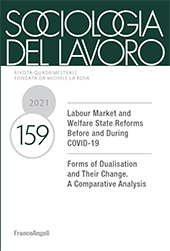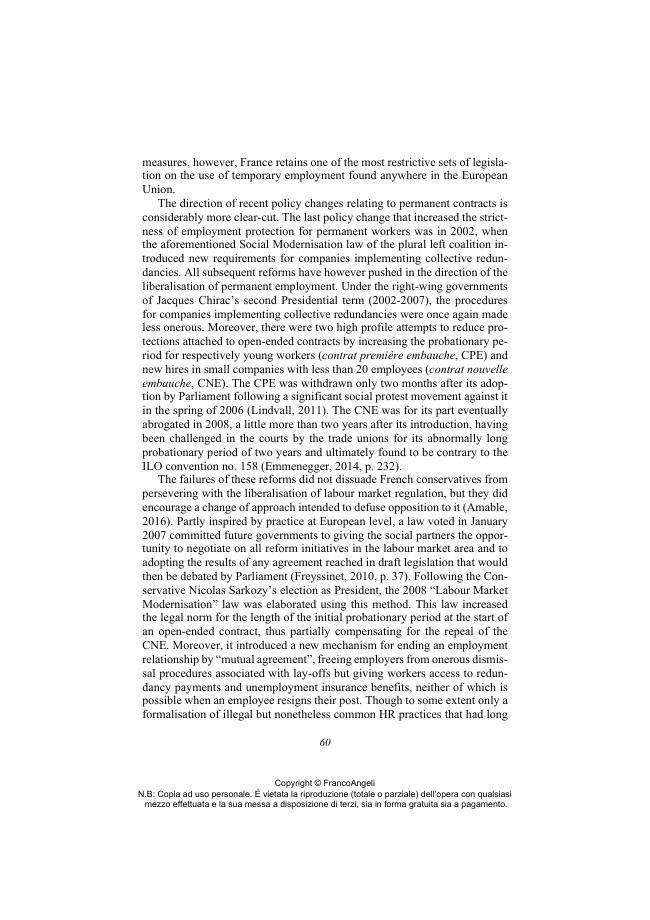Less Dualisation, More Segmentation : France's Labour Market Model in the Early 21st Century
P. 50-70
France has often been understood along with Germany as a paradigmatic case of dualisation, with competitiveness oriented producer group politics driving the step-wise restriction of social and employment protections to core workers, and encour-aging the tacit acceptance of more precarious employment conditions and worse social protection for a growing "outsider" fringe of the workforce. This paper as-sesses this interpretation in the light of developments in French labour law and so-cial policy since the start of the 21st century. In this period segmentation has re-mained a serious problem on the French labour market. Though the growth in the share of atypical employment has slowed in the new millennium, temporary work has on a number of indicators become more unstable and precarious, and transi-tion rates between fixed-term and open-ended contracts have remained extremely low.
This paper nonetheless argues that across the period neither institutional changes in social and employment policies nor their underlying socio-political dy-namics are consistent with the conventional dualisation account. It demonstrates that the rollback of employment protections has impacted core workers more than peripheral ones, and that the unemployment insurance system has become con-siderably more inclusive of workers with discontinuous employment biographies. Given that the regulatory autonomy of the social partners - trade unions and employer associations - remained high in the unemployment insurance system until recently, the outsider-oriented direction of much recent institutional reform in this field casts particular doubt on the notion of a pro-dualisation cross-class coalition in France.
I argue instead that in a context where fundamental reform of the labour market remains a source of deep conflict, French social and political actors have coalesced on a second-best strategy of subsidising outsider precariousness, including through the social insurance system. This helps to explain why segmentation remains so entrenched in France, but also why France has not seen the sharp rises in working-age poverty that are associated with dualisation elsewhere. [Publisher's text]
Is part of
Sociologia del lavoro : 159, 1, 2021-
Articles from the same issue (available individually)
-
Information
ISSN: 1972-554X
KEYWORDS
- Labour market, dualisation, France
- Francia, mercato del lavoro, dualizzazione, segmentazione, assicurazione contro la disoccupazione



